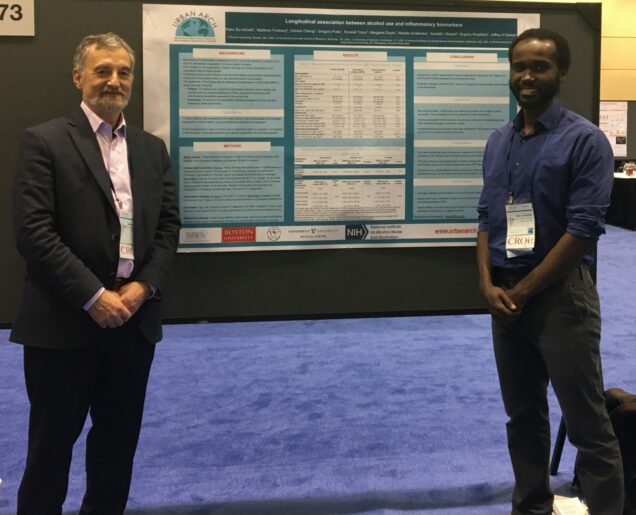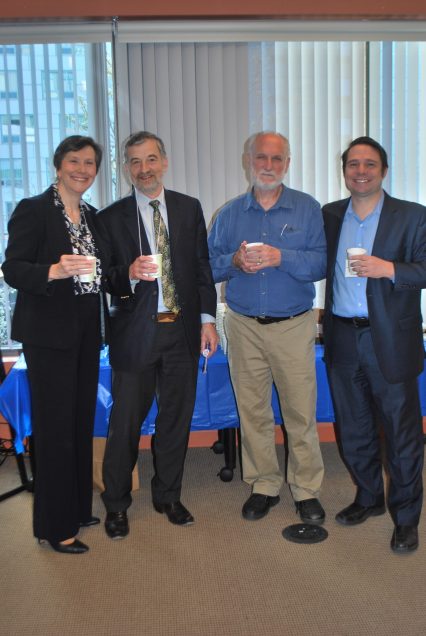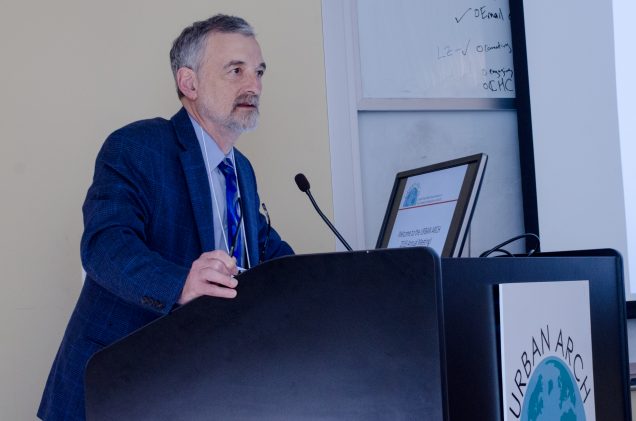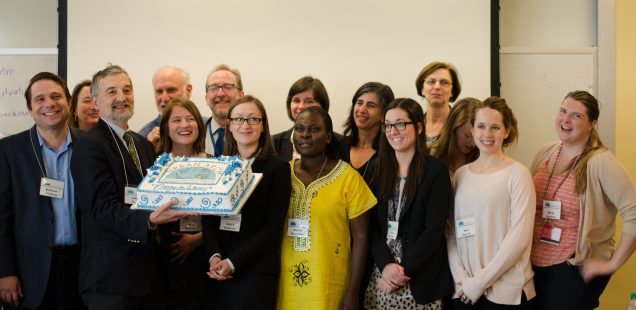Spotlight on… Jeffrey Samet
 Jeffrey Samet, M.D., M.A., M.P.H., Chief of Section of General Internal Medicine at Boston Medical Center, Vice Chair for Public Health of Boston University Department of Medicine, and John Noble, M.D. Professor in General Internal Medicine and Professor of Community Health Sciences at Boston University Schools of Medicine and Public Health As told to URBAN ARCH Admin Core staff, June 2022
Jeffrey Samet, M.D., M.A., M.P.H., Chief of Section of General Internal Medicine at Boston Medical Center, Vice Chair for Public Health of Boston University Department of Medicine, and John Noble, M.D. Professor in General Internal Medicine and Professor of Community Health Sciences at Boston University Schools of Medicine and Public Health As told to URBAN ARCH Admin Core staff, June 2022
Reflecting on the past 10 years of URBAN ARCH, what is an accomplishment you are most proud of?
I am particularly proud that we were able to take three strong research teams, one in Boston, one in Uganda, and one in Russia, and pursue projects that have distinct HIV and alcohol foci. We were able to continue to move forward as a team, occasionally looking at questions across countries, but effectively learning from each other how best to pursue research. This included expertise from Dr. Rich Saitz on assessing alcohol use by history, Dr. Judy Hahn on measurement of alcohol by PEth, and the understanding of biomarkers around inflammation via Dr. Matt Freiberg. Our collaboration persisted all 10 years; this is the accomplishment that I am most proud of.
What do you think is one of the most compelling findings from the URBAN ARCH Consortium research?

Each site has findings that were of interest and not anticipated. One important finding was the result from the ZINC trial in Russia, an RCT among participants with HIV who were initially not on ART and were given zinc vs. placebo for 18 months. Although there was not a significant difference based on our a priori 18-month outcomes, when incorporating repeated measures at 6-, 12-, and 18-month timepoints, there were significant improvements in mortality risk based on the VACS index, which was pretty remarkable. These findings were based on post-hoc analysis, however I think in time that these results will be increasingly valued.
There were also interesting outcomes on alcohol’s lack of effect on bone health, in terms of osteopenia, in the Boston Cohort. There were important findings from Uganda looking at alcohol’s impact on HIV disease progression, which has been a long-time controversial issue. In a compelling and well-designed observational study, alcohol did not have any effect on CD4 count decline among people with HIV not on ART at baseline.
These findings are the ones that stand out to me.

What were some of the major challenges of the past 10 years?
Clearly, COVID. It has been a huge challenge to keep momentum going. All sites were gathering data directly from study participants. Acquiring data became more complicated in the setting of COVID, however in all sites we were able to deal with that. There were some modest delays, but fortunately we were able to forge ahead.
Other challenges in these first 10 years seem to pale compared to COVID. The current war in Ukraine is now a major challenge. Otherwise, challenges were mitigated by a remarkably stable team of research staff and co-investigators on all projects.
What was the most valuable lesson learned from this work?
With regard to carrying out the research, a steady, careful, and persistent approach was needed to perform work that involved collecting, storing, and shipping specimens. This process entailed a big learning curve for all of us. We have done well with establishing a solid and stable working repository. What we need to do now is learn how to optimize its potential.
What are you most looking forward to as we transition to the P01 Centers?
Opportunities to pursue new research! The questions of the International URBAN ARCH Center all focus on TB, which is an incredibly important disease entity in the setting of HIV and alcohol. TB is a new research focus for us in Russia, however not new to Dr. Judy Hahn and her team in Uganda. We will learn from them and our new collaborators who have TB expertise, in particular Dr. Karen Jacobson here at Boston University/Boston Medical Center and Dr. Bashar Staitieh from Emory University. Moving into the TB research realm is what I am most looking forward to. I am also looking forward to hopefully getting back into the field post COVID; in time we hope to travel back to Russia to advance our work on the post TB lung disease study that Dr. Kaku So-Armah is leading.

In 2015, you answered the following question:
What are you most excited about when thinking about the future of URBAN ARCH?
“We put together unique populations. Unique in part due to Russia and Uganda’s international settings but even the Boston cohort with the extent of other drug use. They all have characteristics that open themselves up to studies that are hard to pull off in other places — that part gets me excited. Putting the grant renewal together gets me excited (and worried too – lots of work to do!).”
Do you have a response now to your answer? Has your answer changed at all since 2015?
I like my response from 2015. I think it is the particular exciting opportunity that international research sites provide to examine cutting edge issues in the HIV and alcohol realm. Uganda and Russia still have populations that are unique and different from what we have in the US. The research questions we ask can be carried out in a more efficient way internationally. They can still yield important insights for the treatment of HIV, addressing alcohol issues and TB issues in the US.
In the past 5 years we examined pharmacologic treatment for smoking and alcohol, a study that is not impossible to do in the US, but would require several sites. This study was able to be carried out in Russia at a single site. Similarly, studies on TB progression and alcohol, which would not be possible in the US can be carried out in Uganda. These are important questions that need to be addressed in populations where the prevalence is such that we can observe desired outcomes.
This is still the case for new questions we are asking through the P01 in both Uganda and Russia. Similarly, the other second generation URBAN ARCH P01s are also addressing unique aspects of HIV and alcohol including physical activity and cardiovascular outcomes. It will make for a very interesting next 5 years!
Tell us one surprising thing about yourself.
Airplane travel first started for me when I was 12 years old. I flew from Houston to Dallas to join my family vacation so that I could be in my Little League playoff baseball game.
